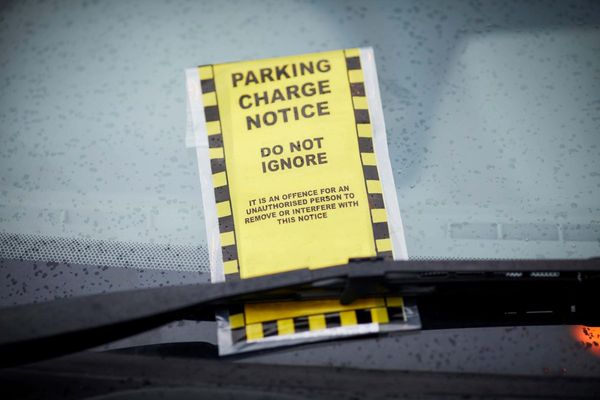
Editor’s note: This is part one of an ongoing series about using trusts and LLCs in estate planning, asset protection and tax planning. The effectiveness of these powerful tools — especially for asset protection and tax planning — depends very much on how they are configured to work together and whether certain types of control over assets and property are surrendered by the property owner.
Estate planners use a multitude of acronyms and names for the trusts they write, many of which are nearly identical in function, though the trust names they conceive of can make good material for marketing purposes. For all the confusing trust acronyms, names and features, all trusts fit into two general categories: revocable trusts and irrevocable trusts.
Trusts are created by contracts, and although a trust can be written or even implied, nearly all people set up a trust with a written contract called a trust agreement. The trust maker creating the trust will need to name a trustee (or trustees) in charge of the trust and the trust property, and the trust agreement must name a beneficiary or purpose for whom the trust property is held.
In a revocable trust agreement, the trust maker often names themselves as the initial trustee, and the trust agreement should provide for successor trustees that can replace the initial trustee once the initial trustee steps down. The initial beneficiary of a revocable trust is usually the trust maker, and when the trust maker dies, the trust maker’s children are most often the successor beneficiaries.
Irrevocable trust agreements should name a trustee other than the trust maker (though the trust maker might serve as a manager of the trust property), and an irrevocable trust will often (though not always) name a beneficiary who is not the trust maker.
In both revocable and irrevocable trusts, the trust agreement will name a trustee who has legal control and authority over the trust, and the trust agreement will also name a beneficiary who has equitable rights over the trust property.
The trust and the property’s title
For either a revocable trust or an irrevocable trust to be effective, the trust maker (also called the grantor or trustor) must title property into the name of the trust, usually by naming the trust as owner of a financial account, or perhaps by filing a deed with a county recorder, naming the trust as owner of real property.
Sometimes the trust will hold the trust property forever, but most often, the trust agreement will require that the trust property, or at least the income from the property, will be distributed to the beneficiary upon occurrence of an event such as the trust maker’s death, or perhaps when the beneficiary reaches an age or stage in life, such as graduation from college.
Both revocable and irrevocable trusts are legal power tools that provide much more certainty for estate planning than does a last will and testament because they also avoid the need for a court process known as probate. The probate court process is required before financial property and real property held in the name of the deceased person can be retitled into the name of an heir, but probate is not required for property held in a trust to be transferred to the trust beneficiary.
Most commonly, a court probate is required to transfer the title of real property that is titled solely in the name of a deceased person — even if the real property is going to be transferred to the child of the homeowner. In some cases, after the death of a real estate owner, a child will understandably not want to wade through the probate process. Probate is a costly, public process that can delay the sale of real property for a year or more, make a family’s personal business public and provide a public court forum for the family to fight.
However, probate is required for the beneficiaries of many classes to obtain legal or marketable title — such as of investment accounts or real estate.
The following example (which I wish were fiction) outlines some of the consequences of subjecting an estate to the probate process:
Example. Parent dies, and the oldest child takes the parent’s last will and testament to an estate attorney to determine how to administer the deceased parent’s estate. The attorney discovers that the parent’s real estate was titled in the parent’s name at time of death. The attorney discloses to the oldest child that before they can lawfully sell the home, the parent’s last will and testament must be probated in a court action. The oldest child is surprised to learn that a last will and testament must be probated, but ultimately engages the attorney to file a probate petition to appoint the oldest child as the personal representative (executor) to administer the estate.
Real estate prices are falling at the time the probate is filed, so the oldest child is hopeful that the probate will go quickly, and they can sell the home. However, a younger sibling shows up to the appointment hearing and objects to the oldest child serving as executor.
In the ensuing probate court battle, the siblings expend tens of thousands of dollars on attorney fees for fiduciary litigation, ultimately delaying the sale of the home for several years. Eventually, a real estate investor who has researched the probate battle in publicly available records swoops in to buy the real estate at a discount as the real estate markets continue to fall. The court orders the home sale proceeds to be distributed, and the children use the diminished home sale proceeds to continue their probate fight.
Why trusts are better than probate
Trusts are much better than probate because they avoid delays, probate costs, publicity from probate and family disputes that often result from the court probate process that is required in nearly all U.S. jurisdictions. Revocable and irrevocable trusts also help to prevent many costly estate administration mistakes, such as taxes and beneficiary disputes.
Both revocable and irrevocable trusts can be drafted to protect property from going to a beneficiary who has creditors or to preserve trust property from going to a beneficiary using government benefits — sometimes a life-and-death situation that can result in the beneficiary’s disqualification from essential, life-sustaining government benefits.
Example. Parent is retired with no ongoing professional risk, parent owns no businesses, and parent owns no rental properties and doesn’t plan to acquire rental properties. Parent does not have assets that are likely to appreciate and will not have a taxable estate because their wealth is far less than the estate tax exemption. Given the parent’s low liability regime and lack of estate tax issues, an attorney recommends a revocable trust to parent.
After the trust is formed, the attorney assists the parent to transfer their property into a trust. When the parent dies, a professional trustee steps in to administer the trust without probate. The parent chose to have a professional trustee administer the estate without probate because the parent’s children are contentious. Because the children are not put in front of a probate court judge, where the children will have a ready forum and listening ear to fight, the estate is preserved from costly litigation and delays.
Using work-arounds to avoid trusts can lead to problems
Despite the definite advantages of using trusts for estate planning, some people are either intimidated by their lack of knowledge about trusts, or they don’t want to incur the costs of setting up a trust. Sometimes a person comes up with what they think is a “clever” work-around to using trusts by instead using deeds, most often by naming their child on the deed to their real property. Catastrophes are inevitable from naming someone on a deed, and tax and liability pitfalls are abundant from using deeds in lieu of trusts for estate planning.
Look for my next article, about how quit claim deeds can cause estate planning catastrophes, in a couple of weeks.







